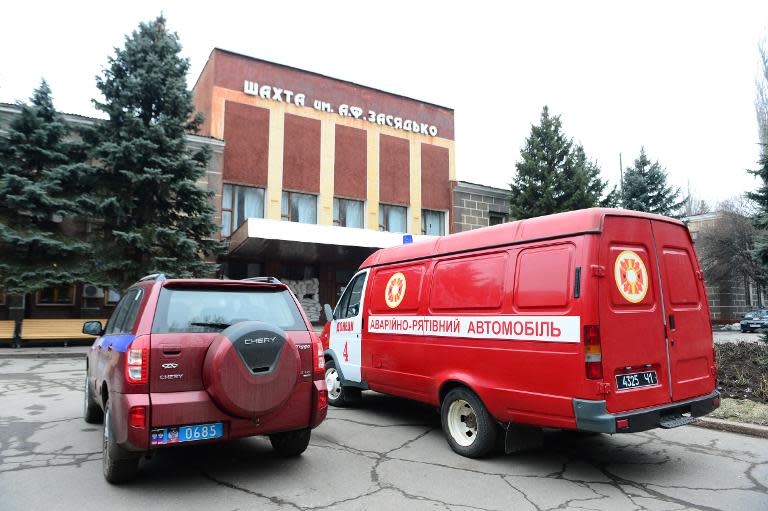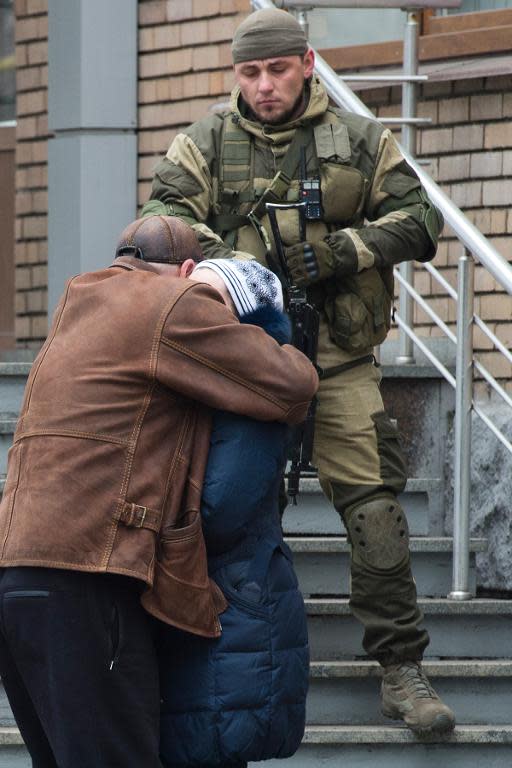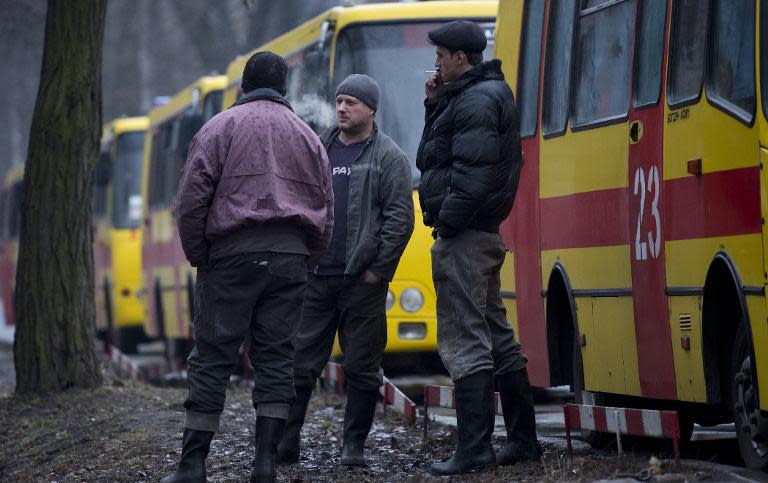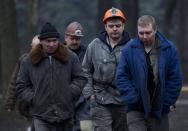Over 30 feared dead in east Ukraine mine blast
At least 17 miners were killed and 16 more were missing and feared dead in eastern Ukraine after a blast on Wednesday at an accident-prone coal mine in the rebel-held city of Donetsk. The early morning blast, believed to be caused by a build-up of methane gas, hit the Zasyadko mine near the city's bomb-scarred airport in what officials described as a "terrible tragedy". By Wednesday evening 17 bodies had been found, according to the regional authorities, and a search was ongoing despite the late hour. "The fate of 16 other miners is still unknown," spokeswoman of the rebel emergency ministry in Donetsk Yuliana Bedylo told AFP. The head of the rebel Donetsk People's Republic administration, Maksim Leshchenko, told reporters that 197 workers, out of 230 in the mine when the explosion occurred shortly before 0400 GMT, had been rescued alive. Emergency workers were forced to call off the rescue operation late Wednesday due to the threat posed by the high methane levels, Mykhaylo Volynets of the Ukrainian Independent Miners Union said. A spokesman for another mining union, who did not wish to be named, told AFP the chances of finding more survivors were "practically zero". - 'I fear he's dead' - In Donetsk, anxious family members gathered outside the mine to await news of their loved ones. Valentina Dzyuba, 72, told AFP she had been waiting for seven hours for news of her 47-year-old son Vladimir. "We have no information. I fear he's dead," a tearful Dzyuba said. Vyacheslav Baloban, one of two injured miners who AFP met at Donetsk hospital, said he was knocked unconscious by the blast. "I just remember the explosion... I just remember the dust," Baloban, who was being treated for a head injury and burns, told AFP. President Petro Poroshenko sent condolences on the "tragedy" to the victims' families in a Twitter message. The coal mines dotted across Ukraine's eastern rustbelt have a history of disasters involving high numbers of casualties. Zasyadko, which is one of the country's biggest, was the scene of the worst mining accident in Ukraine's post-Soviet history in 2007, in which 101 workers were killed. Prime Minister Arseniy Yatsenyuk complained that the rebels did not let government rescue teams help in the rescue operation, casting doubt that the separatists could handle the crisis. The rebel authorities however claimed they had everything they needed. "We don't need the help," said Leshchenko. The head of Donetsk hospital, Alexander Oprichenko, said he had 51 beds available, with another 300 already occupied by patients, around half of whom had been wounded by fighting. "The treatment system has not been affected by the war," he declared. "All we're missing is some drugs. Russia helps but our stocks are low." - 'Thousands of Russian troops' - The mine lies just a few kilometres from the frontline, where sporadic clashes between government forces and the pro-Russian separatists have been reported in recent days, despite both parties backing a February 12 ceasefire deal. A military spokesman in Kiev reported Wednesday that another soldier had been killed by rebel fire in the previous 24 hours, bringing to at least five the number of troops killed since Sunday. The separatists do not provide regular accounts of their losses. Over 6,000 people, mostly civilians, have been killed since the conflict began in April 2014, according to the United Nations. Kiev and the West blame Russia for fuelling the insurgency, but Moscow denies sending troops across border. In fresh accusations, US Assistant Secretary of State Victoria Nuland told a congressional committee that Russia had deployed "thousands and thousands" of troops to neighbouring Ukraine. She also accused Russia of sending "hundreds of pieces of military equipment" to Ukraine since December, including tanks, armoured vehicles and rocket systems. Since the ceasefire took effect the rebels have seized the transport hub of Debaltseve but the truce has largely held since, despite mutual accusations of violations. Western countries have warned that further ceasefire breaches would be met with new sanctions against Moscow. "If the Minsk ceasefire accord does not work then (EU) member states are quite prepared to move to new sanctions," German Chancellor Angela Merkel said Wednesday.

 Yahoo Finance
Yahoo Finance 









